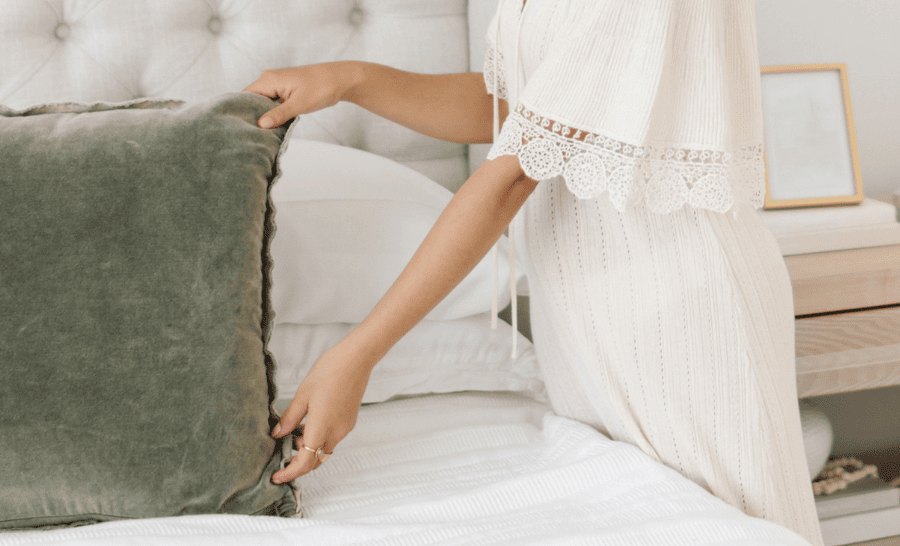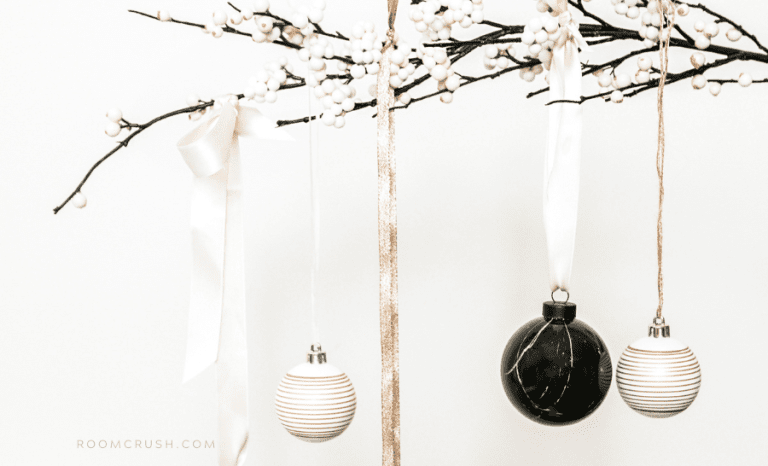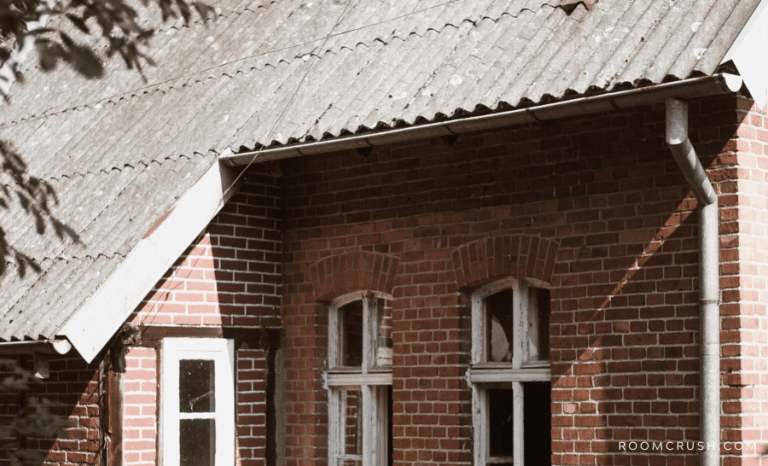Is Renting a Waste of Money or Not?

Maybe you’re living with roommates while you go to college, or you live in an expensive city and don’t have the funds for a down payment. There are many reasons why people choose to rent a home over buying one.
It’s often taught that renting is a waste of money, and buying is the only way to go because you’re building equity with each payment. But is this really true?
Are there scenarios where renting could make a lot of sense? Find the answers about whether renting is a waste or not below.

Is Renting Just Throwing Away Money?
Is paying for shelter and a place to live really “throwing away money?” The short answer is no.
This site uses ads and affiliate content as an Amazon associate earning on qualifying purchases. Disclosure.
Does it build equity and help you to own the home? No. But does that make it a waste? Absolutely not!
In fact, it might make more sense to rent in some cases than buy. And you definitely shouldn’t feel bad or guilty about renting if that works better for your lifestyle.
The flexibility offered by renting is perfect for someone who moves a lot, travels, or would rather call the landlord to fix any issues the house has rather than dealing with them themselves.
Why is Renting Not a Waste of Money?
So we’ve established that there are some serious reasons to rent instead of buy, such as lifestyle. But both are good, in fact, for different situations.
When you buy a home, you’re not only responsible for the mortgage. You also have to factor in property taxes, long-term maintenance, unexpected costs when things break, and additional insurance.
Especially if you live in an area with hurricanes, floods, or other natural disasters, those insurances cost a pretty penny. And while your rent will help cover the cost of insurance for the landlord, if something happens to the home, it’s the landlord’s job to deal with it.
Just make sure you have renter’s insurance to cover your personal items inside the home since that won’t be covered by the landlord.
Overall, you’ll have a lot less stress as a renter than an owner and can put your focus on other things in your life. Here are the top reasons to rent.
8 Benefits of Renting Your Home
Here are 8 reasons why you could consider renting over a long-term mortgage.
1. Flexibility
You’re typically locked into a lease for a year or so max when you rent. And some people do a month-to-month lease.
When you rent, it’s very easy to move if you need to or change your lifestyle. You aren’t stuck in one place for very long.
This is very useful if you’ve just moved somewhere and aren’t sure if you’ll like it or if you need time to decide on a neighborhood to buy a home in.
2. No mortgage
While many people talk of “buying” a home with a mortgage, a mortgage is really just a large loan. You don’t own your home until you’ve entirely paid off the mortgage, and usually, a mortgage term is about 30 years, though it can be more or less.
You won’t have to take out a large loan when you rent or go through all the paperwork of buying. It can be ideal if you don’t feel ready to pay back a considerable amount of money yet.
3. Allows you to save
Is renting a waste of money? Actually, renting can save you money!
If you rent an inexpensive place that allows you to save a down payment for a home or for other financial goals, it can be an excellent choice for your budget.
While you rent somewhere cheap, especially if you live in a place with a high cost of living, you can up your savings goals. You might be able to save a lot more than you would if you had a mortgage to pay, too.
4. Fewer responsibilities
If something breaks down in your house and you own your home, it’s your job to fix it or hire someone to help you. But when you rent, someone else pays those costs.
You aren’t responsible for the maintenance or the property when you rent. This can save you time and money and peace of mind knowing that leaks and other issues will be taken care of.
5. More money for investments
Renting can offer you a better option financially than buying in some cases. If you save money on rent, you’ll have more left over for investments.
While the housing market statistically goes up in value over time, investments can be even more lucrative than homeownership.
Your investments will make interest and, over time, can provide for your retirement. Include investing in your budget and watch your money grow.
6. Save money on furniture/appliances
You might be able to rent an apartment or house already furnished, and they nearly always come with some appliances, like a refrigerator and oven. These items may not sound like they’d be expensive, but if you have to buy them all at once, they can be very costly.
This often happens when you purchase a home. So the costs don’t surprise you, rent and save up money for a down payment, plus a fund for furniture and appliances.
7. Build good renter history
Good renter history is important, especially if you plan on renting in other cities or want to rent somewhere nicer in the future. Good renter history can also help you get a better rate for renting.
It’s always a good idea to build a positive reputation as a renter wherever you go. You can do this by always paying rent on time, keeping the property clean and maintained, and following all renter rules.
8. Fewer risks
Renting represents less risk in some cases than buying a home. The housing market can be very volatile, and prices may go up or down quickly. Because of this, renting can be a steady option that works well for many people.
If you don’t feel ready to buy, know that renting will always give you a place to live, but you don’t have to worry about your property going up or down in value.
Is renting worse than buying?
This is an often-debated issue. While renting may not be bad, isn’t buying a home a better decision? Actually, it depends a lot on your individual circumstances.
First, renting can give you a short-term place to live during transition periods. If you’ve recently moved or are considering a significant life change, you need somewhere to live. Still, you may not want to make a decision as permanent as buying.
Because of this, renting can be a wiser decision for many. Examples of times when you might want to rent instead of buy are:
- You just moved to a new city and aren’t sure what neighborhood to buy in, or you want to see if you like the location.
- You just transitioned to a new job and a new income.
- You want to save up some money and buy something later.
- You live somewhere where the cost of buying is high, and renting is the cheaper option.
As you can see, renting makes sense in a lot of cases. You need to do what works for you at the time. It’s not as though you can’t change your mind later, after all.
Is renting cheaper than owning?
Maybe you think renting is the cheaper option, so you want to rent for a while. But what it really is, is a trade.
Mortgage payments for comparable properties are usually less expensive than rent, though this can vary. Because of this, many people assume renting is more costly and they should buy.
However, owning a home has more expenses than renting. You’ll need to pay a down payment, maintenance, appliances and furnishings, moving expenses, insurance, etc. So you can see how there are many factors besides just the mortgage.
This means that renting may be cheaper in some cases, and in others, buying may be. Don’t base your decision on just the rent or mortgage monthly price.
Rather, do research and make up mock budgets for both, determining all of your costs in advance. Also, factor in how stable your job is and whether you plan on living in that location for the long term.
Should I Rent or Buy a House?
The ultimate question you want answered: renting or buying, which should it be? Again, it depends on you and your finances. Ask yourself these questions first, and then decide.
Are you financially ready to buy a house?
“Financially ready” means you’ve saved up a down payment for a home (ideally somewhere between 10-20% of the purchase price). You should also have an emergency fund and money for moving expenses.
In addition, when you look at homes to buy, the mortgage should be affordable for your income and not put stress on your budget. If you can confidently say that you have all of these financial things taken care of and think it’s a good market to buy into, you should look at buying a house.
Is homeownership best for your lifestyle?
Consider how you live and what you plan on doing in the next few years. If you are pretty settled where you are, don’t plan on moving, and plan on staying at your job for a while, then your lifestyle may support homeownership well.
However, if you plan on moving in the next few years or switching careers, you may want to wait until a later time to buy. Buying a home doesn’t mean that nothing in your life can change.
Still, it does require certain aspects of stability, like living in one location and having the income to pay for your mortgage and expenses.
Consider your individual circumstances.
After considering if you have the funds to do this and the lifestyle to support buying a home, consider your individual circumstances. Many people buy a house just because they think it’s the next step in their lives, without thinking about if they actually want to be responsible for a home or if they and their family are ready to be homeowners.
Before buying or renting, consider your individual circumstances, and any factors that could cause you to choose one over the other.
How to Prepare to Rent
You still need to be prepared if you’ve decided that renting is for you. Make sure you save up money for the first and last month’s rent, a security deposit, and ensure that you have a good credit score before attempting to rent.
Related: 25 Renting Costs (Including Hidden Ones)
Also, look around for rentals with extra perks like furniture or utilities included in the bill. And pick a location that is safe and is reasonably close to your job and weekly activities.
How to Prepare to Buy
Buying requires quite a bit of saving. If you think that’s the next step for you, begin preparing in advance, probably six months to a year in advance or more.
First, save up everything you need for a down payment and other expenses. Then begin looking at home properties.
Be sure to check out various neighborhoods and also know what your non-negotiables are when buying a home. These could be at least three bedrooms, a pool, or a large yard.
Be sure to look at many properties with a realtor and take your time deciding before you jump into a mortgage. Buying can be expensive, and it isn’t a decision you can quickly reverse, so take the time to think it through.
Related: 7 Glaring Signs You Bought the Wrong House
Renting isn’t always a waste of money and can be better in certain circumstances.
Is renting a waste of money? Not necessarily! There are circumstances where renting makes a lot more sense than buying and vice versa.
The things that matter most are your budget, your lifestyle, your values, and things like the housing market.
There are so many factors to consider that you might decide to take some time to figure all of them out before buying. There is nothing wrong with renting, either short-term or long-term, if that works better for your budget and life.
Many people who frequently move or aren’t ready to settle down in a specific location will see the benefits of renting. You can build up your savings, enjoy various cities and towns, and give yourself a chance to figure out what you do and don’t want if you purchase a home.
Homeownership is quite the responsibility, and it can quickly become a burden if you aren’t financially prepared for it or if your lifestyle is better suited for renting. For this reason, you may choose to take a few years to decide to buy or decide against buying a home at all.
Renting is an excellent choice for many reasons and circumstances, and it can help you achieve a lot financially, too. Renting is not throwing away money; it provides you with a home, can help you save some cash and invest, and may be a better choice.
Related Articles:








